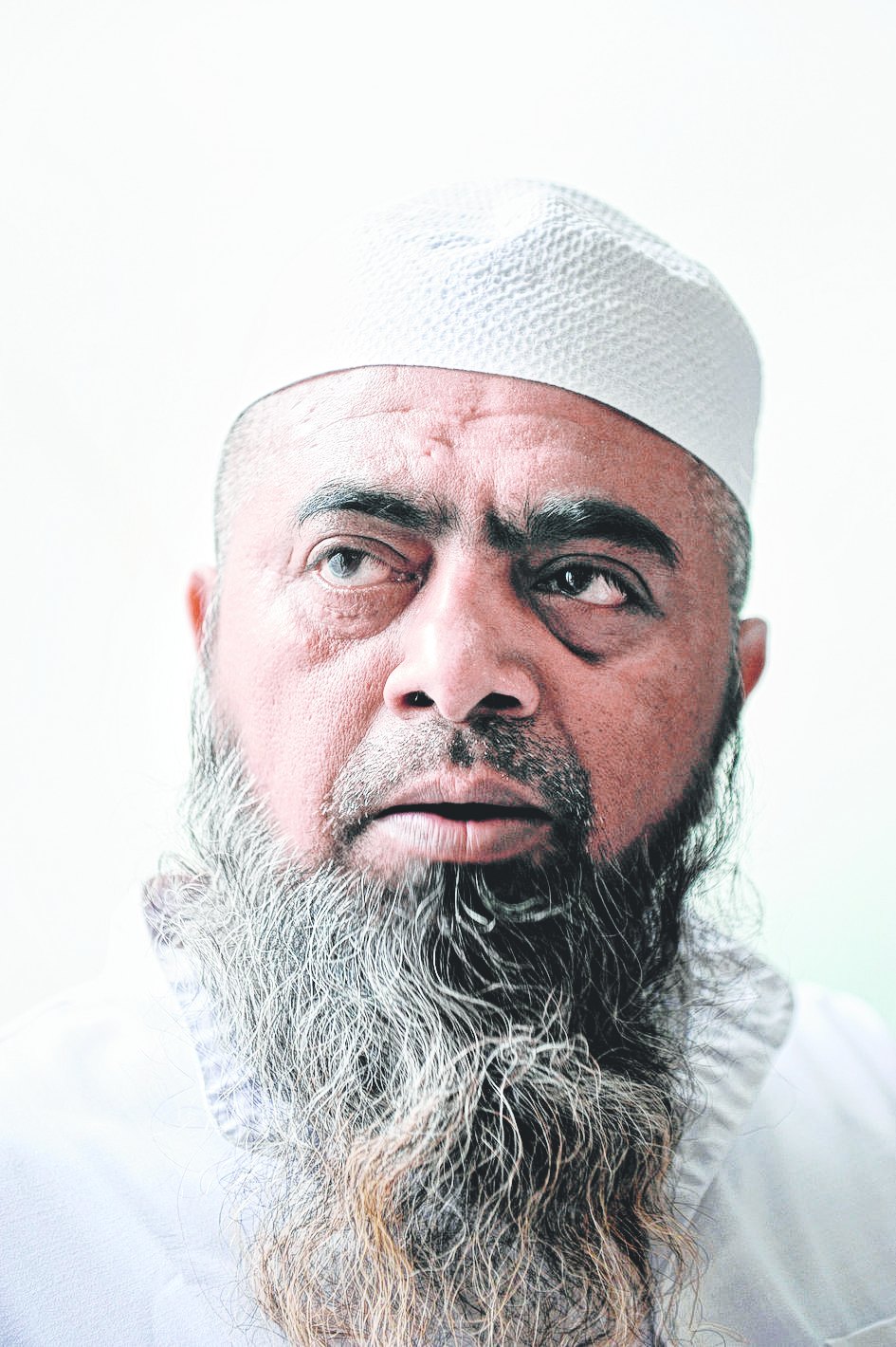
New Delhi, May 8: Abdul Qayyum will complete a year of freedom on May 16, coinciding with the Narendra Modi government's first anniversary, but the Gujarat cleric acquitted in the Akshardham terror case still seems caged - by fear.
"Even after my acquittal by the Supreme Court last year, Gujarat police have kept me under surveillance. My fundamental right as an Indian citizen has been curtailed," the 44-year-old madarsa teacher said today at the release of a book he couldn't unveil in hometown Ahmedabad.
Gujarat police had denied permission for the event last month, saying Qayyum's Gyarah Saal Salakhon Ke Peeche (Eleven Years Behind Bars) could disrupt communal harmony.
Qayyum had spent nearly 11 years in jail, eight of them on death row. The Supreme Court acquitted him and the five other accused on May 16 last year - the day Modi won a landslide - rapping the Gujarat government for framing innocent people.
"Gujarat police did not allow me to release my book in my hometown. I was asked to release it in other states, but not in Ahmedabad. Is it not an infringement of my fundamental rights?" Qayyum asked at the book-release event organised in the capital by Jamiat Ulama-i-Hind, which provides legal assistance to Muslim youths across the country being tried on terror charges.
In the book, Qayyum describes how he was framed, peppering his account with tales of torture in custody. "The police gave repeated electric shocks in a torture chamber. At times, I urinated blood after hours of torture. One day, they had put a revolver to my temple and threatened me to confess that I was also involved in the attack. I have put everything in graphic detail in my book."
The "shocks" seem to have continued even after his acquittal.
"I had applied for a passport two months ago. In their report, they (the police) said I was convicted but did not mention I was acquitted. When I learnt about it, I submitted a copy of the apex court order and only then did I get my passport," said Qayyum, who still cannot stand for over 20 minutes because of the torture.
The cleric and the others were picked up on the basis of two letters the police claimed to have found on the two terrorists shot dead after they had killed 33 people at Ahmedabad's Akshardham temple on September 25, 2002 - months after the riots. Modi was chief minister then.
But despite the fear and foreboding, Qayyum has something to look forward to - a possible Supreme Court order for compensation and belated acknowledgement of lives "destroyed".
Qayyum and the five others had filed a plea last month demanding compensation from the state and exemplary punishment for the cops who "destroyed our lives". "Besides my book on the frame-up and torture, our petition might have made them (police) very angry," Qayyum said, alluding to last month's bar on the release in Ahmedabad.
According to lawyers, the petition is possibly the first to have been filed in the apex court seeking restitution for "malicious prosecution" on terrorism-related charges. The Telegraph had reported on October 30, 2014, about their plans to move the top court.
"The first hearing is slated for May 11 (Monday) and we expect a favourable judgment. Our faith in the apex court has been reinforced after last year's acquittal of the six innocent men," said Jamiat Ulama-i-Hind president Arshad Madani.










